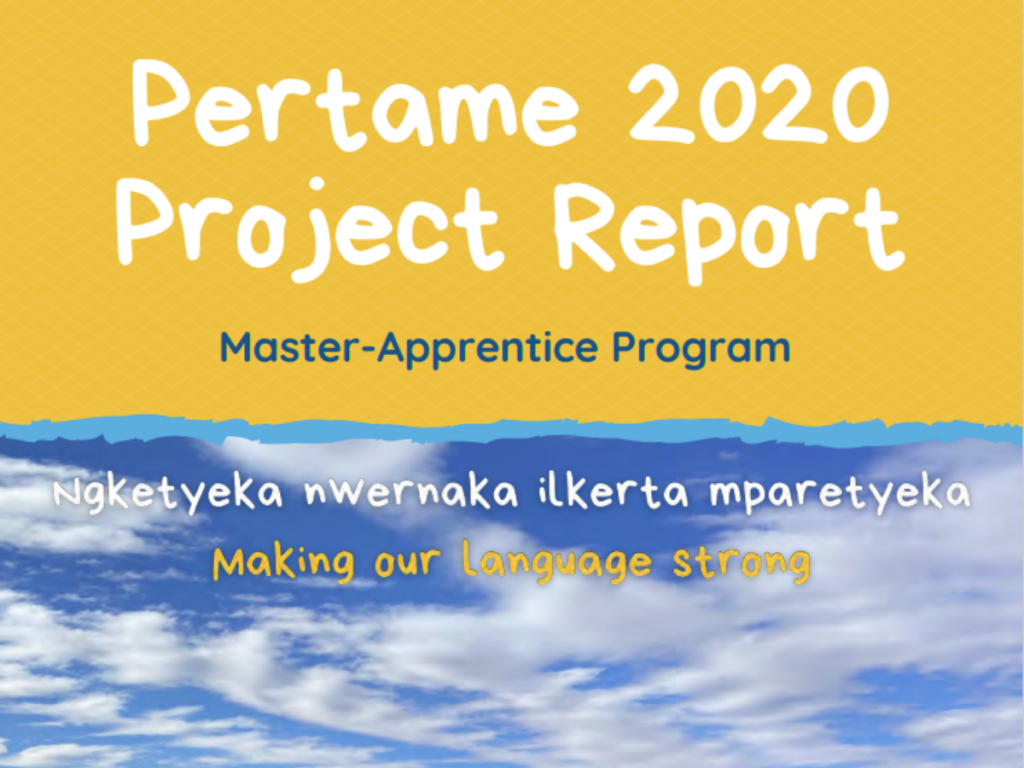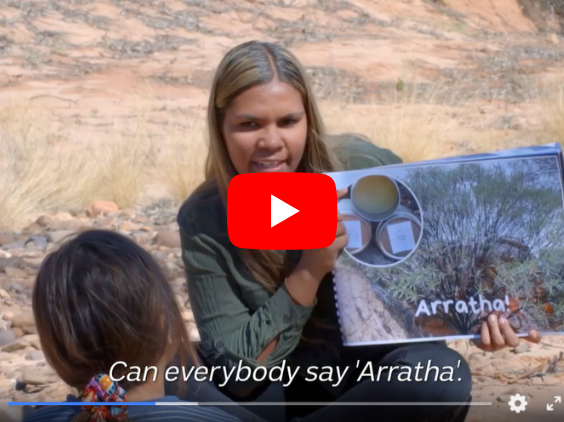Community stories: 23 November 2021
The First Nations’ Pertame language is severely endangered, and at risk of becoming yet another lost language within the next generation. Also known as Southern Arrernte, it is a Central Australian language that belongs to the Country around the Finke and Hugh Rivers, about 100 km south of Alice Springs. Right now, there are fewer than 10 fluent speakers of this language.
The Pertame School is a community-led language program working with Pertame Elders to pass their language and cultural knowledge down to the next generation. They provide a learning platform to grow the next generation of Pertame speakers through the Centre for Australian Languages and Linguistics (CALL).
In doing so, their objective is to create a thriving, connected Pertame community, with increased mental, spiritual and physical wellbeing through language and cultural renewal. With almost all fluent speakers of Pertame within the grandparent and great-grandparent generation, there was an urgent need to invest heavily in the development of community leaders and the next generation of Pertame language teachers.
Since starting in 2017, the Pertame School has grown to include school holiday programs for children, in-school classes, adults’ evening classes and a master-apprentice program. The Pertame School runs as a project through CALL within the Batchelor Institute’s research division. The Institute manages the project’s finances and provides classrooms, office space and vehicles, and CALL provides support and advice to the Pertame project, but all CALL language projects are required to self-fund through grants and philanthropic donations.
With a grant from the 2020 Larger Leverage round of FRRR’s Strengthening Rural Communities program, funded by The Maple-Brown Family Foundation, the Northern Territory’s Batchelor Institute of Indigenous Tertiary Education has continued to deliver their Master-Apprentice Program (MAP). MAP utilises innovative learning techniques originating from Indigenous communities in southern California that are centred around one-on-one oral immersion sessions with Elders – the Masters – which sees a return to the old ways of learning.
One of the apprentices is Shania Armstrong – a recent grade 12 graduate and young Traditional Owner who is taking part in MAP and teaching what she has learned to the next generation of Pertame speakers on Arrente Country.
Shania is part of her family’s dedicated multi-generational involvement in the program, with her great-grandmother, Nana Christobel Swan, one of the last Pertame speakers and the one of the program’s key ‘Masters’. Going from her great-grandmother’s reality of not being allowed to speak her language at school, to being a steward for the regeneration of Pertame has been a great source of pride for Shania and her community. Knowing that this regeneration has already and will continue to grow not just a strong source of social cohesion but a sense of self and culture, is just one of Shania’s motivations to do all she can to heal Country in this way.
In an interview with the ABC’s Healing Country program presenter Lillie Madden, Shania described her involvement in the program.
“When I got the chance to learn my language I took it. I want to keep doing what I’m doing and teach my language so it never dies. The kids love learning their language. Every time they come to a Pertame class they always have a big smile on their face.”
The FRRR grant was used to pay for qualifications and training for apprentices; language learning resources; a contribution towards transport and food costs; as well as towards apprentice employment payments.
Batchelor Institute’s CALL and the Pertame School is proud of this solutions-focused initiative and its wide-reaching impact on the broader community. Learn more here.



